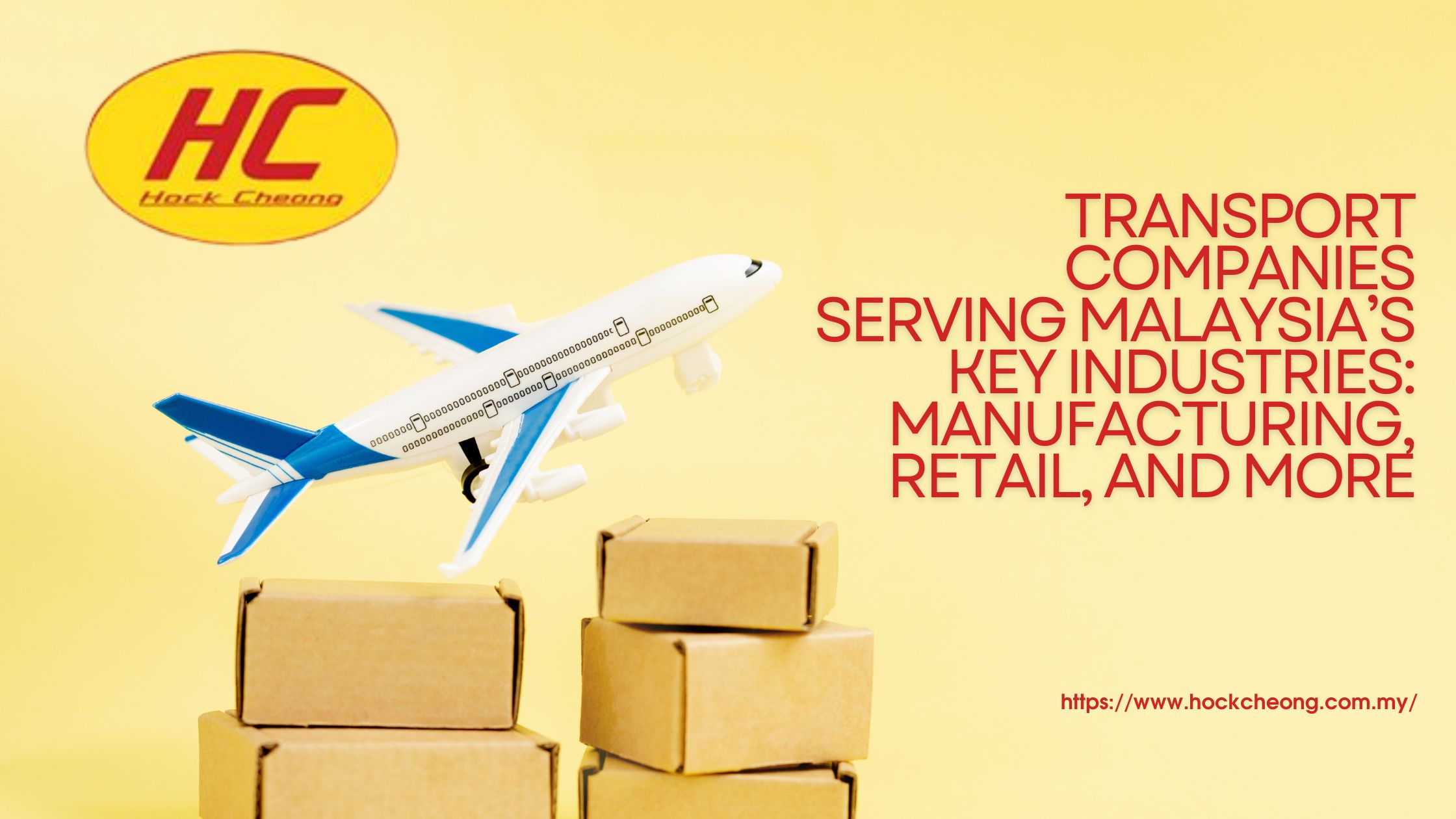
Malaysia’s economy is powered by a diverse mix of industries — from manufacturing and retail to oil and gas, agriculture, and e-commerce. Behind the scenes, transport companies in Malaysia play a critical role in keeping goods moving, supply chains flowing, and businesses growing.
The Backbone of Malaysia’s Industrial Economy
Malaysia’s strategic location in Southeast Asia, coupled with strong infrastructure and growing digital adoption, has made it a logistics hub for both domestic and international trade. Transport companies — both large logistics players and niche service providers — are the backbone of this dynamic ecosystem.
Whether it’s moving raw materials to a factory, delivering finished goods to retail stores, or ensuring fresh produce reaches consumers in top condition, transport companies are integral to operations in the following sectors:
- Manufacturing: Efficiency and Just-in-Time Delivery
Why Transport Matters:
Malaysia is a manufacturing powerhouse — particularly in electronics, automotive parts, machinery, and chemicals. These industries depend heavily on timely, precise transportation of raw materials and finished products.
Services Required:
- Container haulage and intermodal transport for port-related movement.
- Just-in-time delivery solutions to reduce storage costs.
- Specialized vehicles for hazardous or sensitive goods (e.g., semiconductors or chemicals).
Transport Company Contributions:
Leading transport companies in Malaysia like Tiong Nam, FM Global Logistics, and Transcargo provide integrated services for manufacturers, including cross-border trucking to Singapore and Thailand, bonded trucking, and temperature-controlled shipping.
Manufacturers benefit from streamlined transport processes that minimize production downtime, reduce warehousing needs, and optimize supply chains.
- Retail and Consumer Goods: Speed and Scalability
Why Transport Matters:
Retail chains and supermarkets — such as Lotus’s (formerly Tesco), AEON, Guardian, and Watsons — rely on efficient transport networks to stock their stores on time and keep up with demand fluctuations.
Services Required:
- Multi-drop deliveries to multiple store locations.
- Cold chain logistics for perishable goods like dairy, frozen food, and produce.
- Reverse logistics for returns and unsold inventory.
Transport Company Contributions:
Transport providers cater to fast-moving consumer goods (FMCG) by offering scalable delivery networks, route optimization, and GPS-enabled tracking. Many also operate cross-docking facilities that allow goods to be quickly sorted and sent out without warehousing delays.
In the competitive retail space, transport efficiency directly impacts customer satisfaction and inventory turnover — two critical success factors.
- E-commerce and Last-Mile Delivery: Speed Is Everything
Why Transport Matters:
Malaysia’s booming e-commerce sector — led by Shopee, Lazada, TikTok Shop, and Zalora — has completely transformed the logistics landscape. With consumers expecting same-day or next-day delivery, last-mile transport has become a battleground.
Services Required:
- Last-mile delivery and parcel drop-off services
- Same-day delivery for metropolitan areas
- Real-time tracking and delivery notifications
Transport Company Contributions:
Companies like Ninja Van, J&T Express, Pos Laju, and Lalamove have revolutionized the transport model with flexible fleets, on-demand services, and real-time communication with customers.
By leveraging data analytics and delivery automation, these companies ensure fast, accurate, and traceable delivery — which is crucial to customer retention in the online shopping space.
- Oil, Gas, and Heavy Industries: Specialized and Secure Handling
Why Transport Matters:
Malaysia’s oil and gas sector — especially in regions like Sarawak and Terengganu — requires transport providers that can handle oversized cargo, hazardous materials, and remote locations.
Services Required:
- Heavy haulage and abnormal load transport
- Hazardous goods (HAZMAT) compliance
- Secure and GPS-tracked transport for high-value equipment
Transport Company Contributions:
Specialized transport providers such as Dinamik Transport and Konsortium Logistic support large-scale energy projects by offering end-to-end logistics, including port-to-site transport, crane handling, and route surveys.
Without skilled and compliant transport partners, oil and gas companies face risks of regulatory non-compliance and costly delays.
- Agriculture and Fresh Produce: Cold Chain Reliability
Why Transport Matters:
Malaysia’s agriculture sector — including palm oil, fruits, vegetables, and seafood — is a key contributor to exports and domestic food supply. Many of these products are highly perishable and require temperature-controlled logistics.
Services Required:
- Refrigerated trucks and containers
- Fast transit from farms to urban distribution centers
- Sanitary and certified handling procedures
Transport Company Contributions:
Cold chain specialists like City-Link Express and Tasco Berhad offer dedicated refrigerated transport services with monitoring systems that ensure consistent temperatures during transit.
Timely, hygienic delivery ensures food safety, reduces spoilage, and supports both local consumption and export requirements.
The Future of Transport in Malaysia’s Industries
Malaysia’s transport sector is moving toward digital transformation and sustainability. Transport companies are investing in:
- AI-powered route optimization to reduce fuel usage and delays.
- Electric vehicles (EVs) to meet green logistics goals.
- IoT tracking to provide transparency across supply chains.
Public and private partnerships are also encouraging the development of logistics hubs, smart highways, and rail-road integration, further supporting industrial transport needs.
Final Thoughts
Transport companies are more than just service providers — they are strategic partners driving growth across Malaysia’s key industries. Whether supporting manufacturing precision, retail efficiency, or agricultural freshness, these companies enable businesses to move smarter, faster, and more cost-effectively.
As Malaysia continues to position itself as a regional logistics leader, the transport sector will play an even greater role in delivering economic resilience and industrial progress.